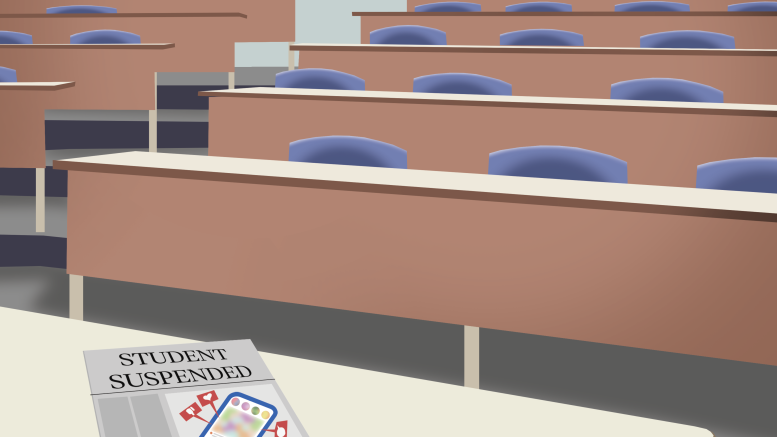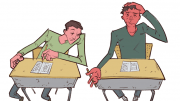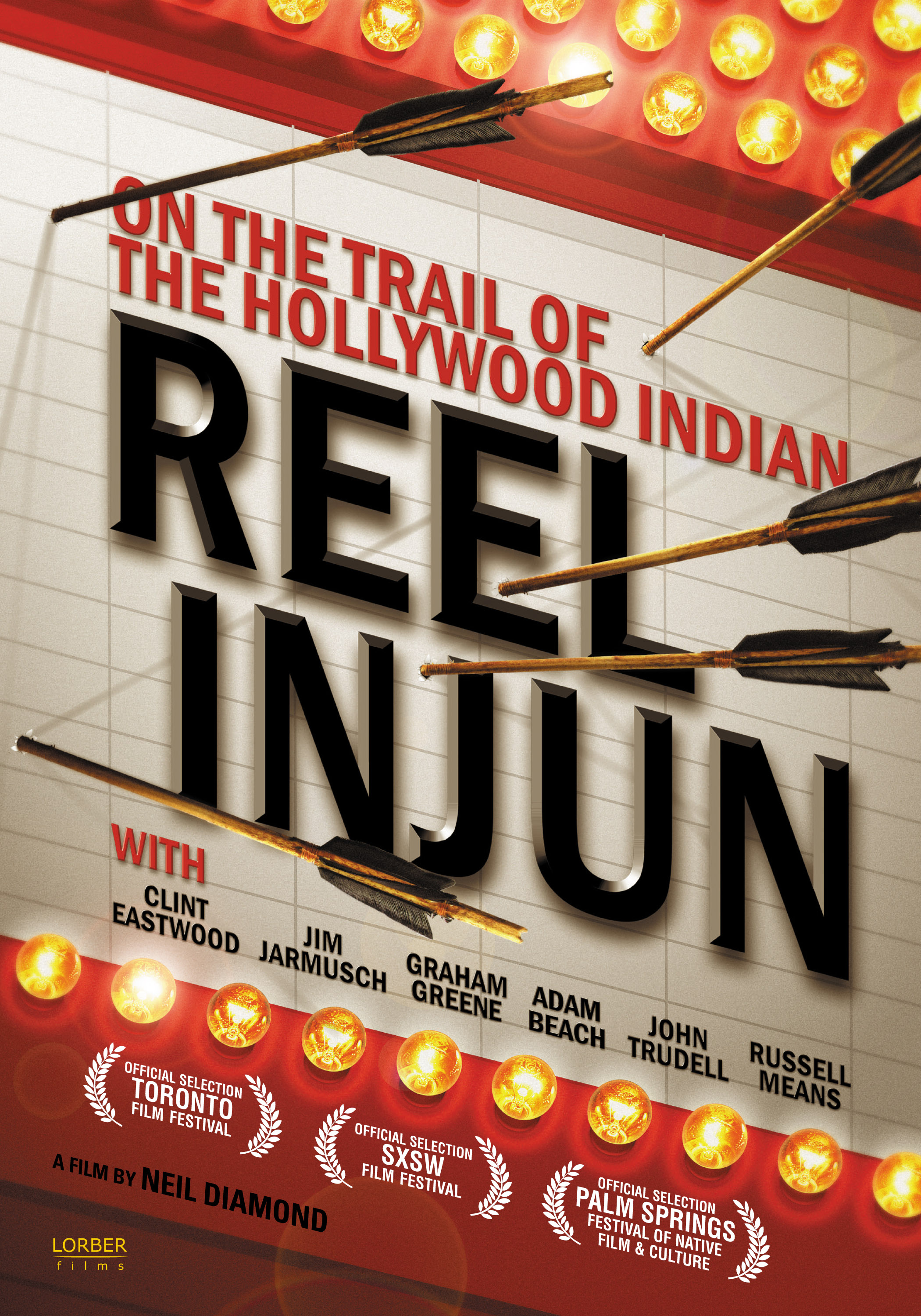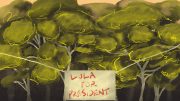Over the past decade at the U of M, I’ve taught a course called “Sometimes Pus, Sometimes Poetry: Cinema and Israel/Palestine” several times. The first part of the title borrows a line from the great Israeli poet Yehuda Amichai. The syllabus consists of roughly half Israeli films and half Palestinian films, along with several works of literature and criticism by Israeli and Palestinian writers.
Compared with other courses I offer, even ones that concentrate on much more obscure and formally demanding films, the enrolment has always been modest: on average, between ten and fifteen students. Yet, always, these small groups have proved to be stellar, as if a self-selecting logic were at work. Everyone was there, it seemed, because they absolutely wanted to be, because they had some special interest and investment in the topic, or at least an openness to becoming interested and invested.
Still, I was always faced with the problem of a small enrolment, which is not an insignificant matter in a university climate increasingly driven by financial imperatives and the brute demand to fill seats. Why were the numbers so comparatively low? Obviously, I knew a good part of the reason.
Putting aside my exceptional students, many people feel apprehensive about talking about Israel-Palestine, an infamous “landmine” of a topic. It’s no wonder that many students would simply rather steer clear — especially when lacking a firm grasp of the history of the region and of the peoples involved (a gap that my course anticipates and attempts to rectify) — and instead grapple with the different complications of, say, a course on experimental film.
Following Oct. 7, I wonder what my course will look like the next time I teach it. With hundreds of thousands of people out in the streets in major cities and social media feeds crowded with posts about nothing but the conflict, will the course numbers rise, reflecting the unprecedented catapulting of Israel-Palestine — already the most emblematically charged conflict in the world — into the global consciousness? Or will even fewer students enrol, the no-go-ness of the topic seeming even more apparent on account of the intensity of the attendant discourse — and, more pressingly, on account of increased fears about what one can and can’t say, particularly when it comes to voicing criticisms of Israel. I speak here in asymmetrical terms because it is overwhelmingly the case that punitive actions, when they arise, have to do with speech that casts Israel in a negative light rather than, say, speech about the total collectivity of Palestinians couched in dehumanizing rhetoric.
At any rate, I have genuine concerns that my course will become more difficult to carry out in a necessary spirit of openness — concerns crystallized by the affair at our own institution of Arij Al Khafagi, a nursing student who has been suspended based on accusations of making antisemitic posts on social media.
What I know about the affair is what has been made public, and what has been made public does not provide evidence that justifies the ruling against Al Khafagi. The apparently most controversial of Al Khafagi’s Instagram posts reproduces a cartoon in which an Israeli soldier, holding a machine gun over a distraught Palestinian lying in a pile of rubble, looks in a mirror and sees himself as a Nazi soldier, above which a caption reads: “The irony of becoming what you once hated.”
As my colleague Ben Baader has written, this post and the others “fall squarely within the realm of protected and common political expression, whether one agrees with them or not, or if one finds them distasteful.”
In the cartoon I have just described, one can make a plausible deduction that a statement is not being made about Jewish people in general or even about all Israelis. The Jew looking in the mirror is very specifically an Israeli soldier, in military uniform, wielding a machine gun, engaged in a brutalizing military operation. What the cartoon compares to Nazi violence, in other words, is — pointedly — Israeli-state military violence. Is this quite narrow and non-essentializing analogy so out of bounds as to warrant a suspension from a nursing program? I don’t believe so. However, it is not my intention to defend the image.
Rather, in light of the charges against Al Khafagi, I would like to recount some passages from an extraordinary Israeli novella, S. Yizhar’s Khirbet Khizeh — a text that I regularly teach in my course on cinema and Israel-Palestine, and that the Israeli critic David Shulman described in 2007 as a “canonical text, a masterpiece of modern Hebrew prose and, in theory, still an optional part of the standard curriculum in Israeli high schools.”
Published in 1949, the novella is told from the uneasy first-person perspective of a solider in the Israeli army who is recalling his witnessing — and participation in — a violent expulsion of Palestinian villagers during Israel’s War of Independence, or what Palestinians refer to as the Nakba (the Catastrophe). The name of the village under erasure, which another, unruffled soldier refers to as “Khirbet what’s-its-name,” serves — with an importunate sense of memory — as the work’s title.
Watching a Palestinian woman and her child in their tearful march of dispossession, the narrator (a sabra, a Jew born in pre-1948 Palestine) reflects: “I had never been in the Diaspora — I said to myself — I had never known what it was like… but people had spoken to me, told me, taught me, and repeatedly recited to me, from every direction, in books and newspapers, everywhere: exile. They had played on all my nerves. Our nation’s protest to the world: exile! It had entered me, apparently, with my mother’s milk. What had, in fact, we perpetrated here today?”
The narrator continues the train of thought in the final pages of the novella, as the army transports more of the villagers away on trucks: “I felt that I was on the verge of slipping. I managed to pull myself together. My guts cried out. Colonizers, they shouted. Lies, my guts shouted. Khirbet Khizeh is not ours. The Spandau gun never gave us any rights. Oh, my guts screamed. What hadn’t they told us about refugees. Everything, everything was for the refugees, their welfare, their rescue… our refugees, naturally. Those we were driving out — that was a totally different matter. Wait. Two thousand years of exile. The whole story. Jews being killed. Europe. We were the masters now.”
Passages such as these bring into explicit comparative proximity Israeli military violence against Palestinians and the history of violence against Jews — a history that undoubtedly includes the Nazi chapter, given the narrator’s references to “Europe” and to the recent need to rescue “our refugees.”
One can imagine someone stopping me here and claiming that these passages differ from the cartoon posted to social media, and are permissible, because they are embedded within a complex, interpretively open-ended literary work, in contrast to a “crude” one-panel cartoon. Yet this argument betrays an insupportable prejudice about “low” versus “high” culture, presuming, unjustly, that cartoons as a — political — art form are strictly alien from literature.
At bottom, the “scandalous” comparisons at work in Yizhar’s novella and the cartoon cannot be neatly distinguished. Therefore, I wonder why it has been Al Khafagi’s fate to be hauled before a disciplinary committee, but not mine. If the standard of censure is merely sharing material that draws a parallel between Israeli military actions and Nazism, then am I not also guilty for teaching Khirbet Khizeh? Worse, I have done so on campus, in a classroom, an unequivocally public and professional arena, whereas Al Khafagi’s posts were made on her social media account, in an ambiguous zone between the private and the public, the personal and the professional.
Among other things, the whole affair sets a chilling precedent when it comes to the university’s ability to bring students’ online lives to bear on their status as students. How far ought such monitoring extend and with what consequences? Should all students’ ability to be enrolled at university be made contingent on retrospective and ongoing combing of their traces on the internet?
Increasingly these days, in the context of discussions about antisemitism on campus and in other arenas, talk centres on the issue of safety. Some Jews, even many Jews, attest to not feeling safe when confronted with voices critical of Israel. Regarding these fears, which I believe are real — that is to say, experientially real — I am again compelled to reflect on my Israel-Palestine class.
During one iteration of the class, a student — like me, Jewish, having grown up with a fairly exclusively one-sided, positive image of Israel — stormed out at the end of a screening, deeply shaken, in tears. Incidentally, the film we were watching was Israeli, Ari Folman’s Waltz with Bashir, which reckons (to a limited extent) with the Sabra and Shatila massacre of Palestinians by Christian Phalangists, facilitated by the Israel Defense Forces, in Lebanon in 1982.
After experiencing such disquiet, the student didn’t drop the class. Rather, he stuck it out, even though by the end his thinking about the Israeli-Palestinian conflict hadn’t much changed. It was only years later when I ran into him that he told me that, in fact, now, his thinking had changed, and that he held a much more complex and critical view of the stories about Israel that he been told as a child. Something had happened in the intervening years — I don’t remember what — but, in any case, he reported to me that much of what we discussed in the course was now, at a delay, making more sense and that he was processing it in a much different way than he did at the time.
By screening the film that so shook the student, and others like it containing content critical of Israel, I can’t honestly say that I was keeping the student, in his original mindset, free from feeling unsafe. Yet none of the material that I was teaching was promulgating antisemitism — an ideology whose history has been an object of my research, and that it feels odd to even need to state, I abhor and will condemn whenever I encounter it. Moreover, the student’s experience turned out well in the long run, turned out to be something that he was thankful for having gone through.
I’m not so naive as to think that every such experience will turn out the same way. However, the episode demonstrates that feeling unsafe, in the sense of being anxiously unmoored or challenged in one’s fundamental beliefs, does not in itself constitute harm, and certainly, if we are to respect critical principles of academic freedom, ought not by that same token constitute grounds for shutting down and censoring ideas that precipitate such a reaction.
I have no trouble acknowledging that certain people who consider themselves advancers of the cause of Palestinian liberation, either wilfully or not, cross the line with their anti-Israel sentiments and spew expressions of genuine antisemitism. However, that this fractional “antisemitism of the left” — a real, if often overinflated and cynically weaponized phenomenon — should demand that we quell and punish an entire, multifarious movement expressing wholly legitimate resistance to a longstanding, brutal occupation does not make sense. And to emphasize, the cartoon that I have discussed above does not fall into this category.
At the time of my writing, nearly three months have passed since Oct. 7. In response to the Hamas attacks, which left 1,200 people dead, the majority civilians, and involved a mass seizure of civilian hostages — that is to say, attacks that, while emerging out of conditions of colonial occupation, involved unambiguous atrocities — Israel has responded with atrocities and civilian-slaughtering of its own of an order of magnitude several times higher, as is characteristic of its response to assaults, and as Hamas would well have anticipated. Under a relentless campaign of bombings and a ground invasion over 22,000, or one per cent, of Gazans have been killed.
Moreover, as professor Devi Sridhar, the chair of global public health at the University of Edinburgh, has recently written in the Guardian, “Ultimately, unless something changes, the world faces the prospect of almost a quarter of Gaza’s 2 million population — close to half a million human beings — dying within a year. These would be largely deaths from preventable health causes and the collapse of the medical system. It’s a crude estimate, but one that is data-driven, using the terrifyingly real numbers of deaths in previous and comparable conflicts.”
In the face of such rapidly escalating suffering of a population that consists of nearly half children, who were not even born when Hamas was elected in 2006 (the last time elections were held in Gaza), it is perilous to cultivate an atmosphere that hinders speaking out against such a situation. In another recent article, in the New Yorker, the Jewish Russian-American writer Masha Gessen has detailed a surreally dystopian, widespread clampdown on speech critical of Israel in memory-haunted Germany; and in an almost too-neat proving of the author’s point, a German foundation took issue with Gessen’s comparison of Gaza to the Jewish ghettos in Nazi-occupied Eastern Europe, and pulled out of plans to present them with a prestigious prize for political thought named — ironically — after the iconoclastic German-Jewish thinker Hannah Arendt.
It would be wrong for our university to proceed, however preliminarily, down a similar path. For such a way not only risks permitting a genocide (is the term so controversial when nearly a quarter of Gazans are projected to die?) to unfold without contestation, but makes the society in which such speech codes are enforced drastically less safe for its denizens (yes, less safe). Who amongst us would feel comfortable and secure in an environment in which people are afraid to speak out against injustice, and can be severely, damagingly punished for doing so? Such a prospect embodies a truly terrifying form of non-safety entirely without upshot.
Especially when many feel hopeless about the impact of their actions on a distant arena of so far unimpeded death-dealing, it is important that when it comes to situations close to home, where the possibility of making a difference is more immediate and tangible, we do make sure to act.
This is the situation we find ourselves in in the case of Al Khafagi, who is imminently set to appeal her case. Overturning the ruling against her would help make the university an institution governed by constructive educational ideals — where students and teachers can express themselves and test out ideas without fear of reprisal, and where, indeed, there will be unsettled feelings — rather than by an incoherent, chilling, falsely-problem-solving apparatus of discipline.
Jonah Corne is an associate professor in the department of English, theatre, film & media, where he serves as coordinator of the film studies program.





